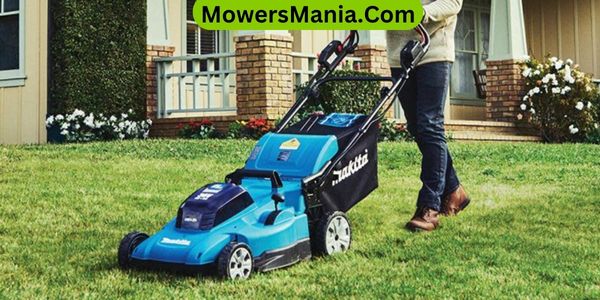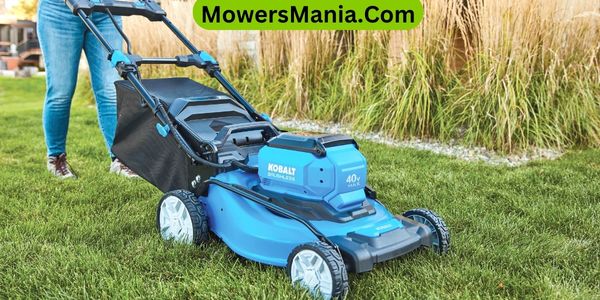So, you’re looking to find the perfect lawn mower for your landscape, huh?
Choosing the right one can make all the difference in keeping your yard looking pristine and well-maintained. With so many options out there, it’s important to consider factors like the size of your yard, the type of terrain you have, and your own physical capabilities.

Understanding the different types of lawn mowers and their features can help you make an informed decision. Additionally, considering maintenance and storage needs, as well as setting a realistic budget, can ensure that you invest in a mower that suits your specific needs.
Let’s dive in and explore how to choose the right lawn mower for your landscape.
Assess Your Yard Size and Terrain
You should measure the exact size of your yard and assess the type of terrain it has to determine the most suitable lawn mower for your needs.
For smaller yards, a push mower or a reel mower might be sufficient, especially if the terrain is relatively flat and easy to maneuver. These types of mowers are ideal for yards that are around a quarter of an acre or less.
However, if your yard is larger or has uneven terrain, a self-propelled or riding mower would be more suitable. Self-propelled mowers are great for yards with slopes and inclines, as they can assist you in navigating these challenging terrains.
If you have a very large yard, a riding mower or a lawn tractor might be the best option, as they can cover large areas efficiently and with less physical exertion.
Consider Your Physical Limitations
When choosing a lawn mower, it’s important to assess your physical capabilities. Look for ergonomic designs that are comfortable and easy for you to handle.
Consider factors like weight, handlebar height, and ease of maneuverability to ensure a good fit for your specific needs.
Assess Physical Capabilities
Considering your physical limitations, it’s essential to assess your ability to handle the weight and maneuverability of the lawn mower.
Before making a purchase, take into account the following factors:
- Weight: Determine if you can comfortably lift and push the mower, especially if you need to maneuver it up slopes or stairs.
- Grip and Controls: Check if the handles and controls are easy for you to reach and operate, ensuring that you can comfortably steer the mower.
- Starting Mechanism: Consider whether you can easily pull the starter cord or operate the electric start, depending on your physical strength and dexterity.
- Vibration and Noise: Evaluate if you can tolerate the vibration and noise levels emitted by the mower during operation, taking into account any physical sensitivities you may have.
Choose Ergonomic Design
Assess the ergonomic design of the lawn mower to ensure it accommodates your physical limitations and provides comfortable operation.
Look for features like adjustable handles and cushioned grips to minimize strain on your hands and arms. Additionally, consider the weight of the mower to ensure it’s manageable for you to push or maneuver.
Here’s a comparison of some ergonomic features to consider:
| Feature | Description | Benefit |
|---|---|---|
| Adjustable Handles | Allow you to set the handle height | Reduce strain on your back and arms |
| Cushioned Grips | Provide a comfortable grip | Minimize discomfort during operation |
| Lightweight Design | Easier to push and maneuver | Reduces physical exertion |
Choosing a lawn mower with these ergonomic features can significantly improve your mowing experience, making it more manageable and comfortable for you.
Understand Different Types of Lawn Mowers
To choose the right lawn mower for your landscape, understand the different types of lawn mowers available. Each type of lawn mower has its own unique features and benefits, so it’s important to consider your specific needs and the characteristics of your landscape before making a decision.
Here are the different types of lawn mowers to consider:
- Push Reel Mowers: These mowers are environmentally friendly and require no gas or electricity, making them a great choice for smaller lawns. They’re quiet, easy to maintain, and provide a clean cut.
- Gas-Powered Walk-Behind Mowers: Ideal for medium to large lawns, these mowers offer more power than reel mowers and are suitable for various types of grass. They’re available in self-propelled or push models, providing flexibility based on your needs.
- Riding Lawn Mowers: Perfect for large lawns and commercial use, riding mowers offer comfort and efficiency. They come in various sizes and cutting deck widths, providing a faster mowing experience.
- Robotic Lawn Mowers: These innovative mowers are autonomous and require minimal effort on your part. They’re suitable for smaller to medium-sized lawns and operate quietly while maintaining the grass at a consistent height.
Evaluate Features and Accessories

When selecting a lawn mower for your landscape, it’s essential to evaluate the features and accessories that will best suit your specific needs and lawn maintenance requirements. Consider the size and terrain of your lawn.
If you have a large, hilly yard, look for a mower with larger rear wheels for better maneuverability. For smaller, flatter lawns, a mower with a lightweight design may be more suitable.
Another important feature to consider is the cutting height adjustment. Different grass types thrive at different heights, so having the ability to adjust the cutting height will help you maintain a healthy lawn. Additionally, consider the grass disposal options.
Some mowers come with a mulching feature, which finely chops grass clippings and returns them to the lawn as natural fertilizer. Others have a rear bag attachment for easy grass collection.
Accessories such as a water hose attachment for easy cleaning, headlights for mowing in low light conditions, and ergonomic handles for comfortable operation can also enhance your mowing experience.
Evaluate these features and accessories to ensure that your chosen lawn mower meets your specific landscape needs and makes lawn maintenance a more efficient and enjoyable task.
Determine Maintenance and Storage Needs
When choosing a lawn mower, consider the storage space it will require.
You’ll also want to think about the frequency and cost of maintenance.
These factors will help you determine the practicality of different lawn mower options for your landscape.
Storage Space Requirements
You’ll need to consider the storage space requirements for maintaining and storing your lawn mower. When deciding on a lawn mower, keep in mind the space it will take up in your garage or shed.
Here are some factors to consider:
- Measure the dimensions of your storage space to ensure the lawn mower will fit.
- Consider a foldable or compact lawn mower if you have limited storage space.
- Think about the maneuverability of the mower in your storage area.
- Assess if you have additional space for storing fuel, oil, and maintenance tools.
Understanding your storage limitations will help you choose a lawn mower that fits both your landscaping needs and your storage space.
Maintenance Frequency and Cost
To determine the maintenance and storage needs for your lawn mower, first calculate the frequency and cost of required upkeep.
Regular maintenance is crucial to keep your lawn mower running smoothly and extend its lifespan.
Here’s a breakdown of the average maintenance tasks and their frequency and cost:
| Maintenance Task | Frequency | Cost |
|---|---|---|
| Oil Change | Every 25 hours | $10-$20 |
| Air Filter Change | Annually | $5-$15 |
| Spark Plug Change | Annually | $2-$5 |
| Blade Sharpening | Bi-annually | $10-$15 |
Set a Realistic Budget

Before starting your search for a lawn mower, consider setting a realistic budget based on the features and capabilities you need. Setting a budget will help you narrow down your options and find the best lawn mower that meets your specific requirements.
Here are some factors to consider when setting a realistic budget:
- Lawn Size: Determine the size of your lawn to understand the type of mower that suits your needs.
- Features: Consider the specific features you require, such as mulching capabilities, adjustable cutting heights, or self-propelled functionality.
- Maintenance Costs: Factor in the long-term costs of maintaining the mower, including fuel, oil, and potential repair expenses.
- Durability: Investing in a higher-quality, more durable mower may require a larger upfront cost but can save money in the long run.
Frequently Asked Questions [FAQs]
Can I Use a Riding Lawn Mower on a Hilly Terrain?
Yes, you can use a riding lawn mower on hilly terrain as long as it’s designed for slopes and has good traction control. Look for a riding mower with a low center of gravity and wide wheelbase for stability.
Are There Any Environmentally Friendly Options for Lawn Mowers?
Yes, there are environmentally friendly options for lawn mowers. Electric and reel mowers produce fewer emissions and are quieter than gas-powered mowers. They also require less maintenance and have lower operating costs.
What Safety Features Should I Look for When Choosing a Lawn Mower?
When choosing a lawn mower, look for safety features like a blade brake clutch, adjustable handlebars, and a kill switch. These features help prevent accidents and make mowing your lawn a safer experience.
How Often Should I Sharpen the Blades on My Chosen Lawn Mower?
You should sharpen the blades on your chosen lawn mower at least once a season. This ensures optimal cutting performance and a healthier lawn. Regular maintenance will keep your mower in top condition for years to come.
Are There Any Special Storage Requirements for Electric Lawn Mowers?
To store electric lawn mowers, keep them in a dry place, away from direct sunlight and moisture. Before storing, ensure the battery is fully charged. Store the mower in a clean and safe location, following the manufacturer’s guidelines.
Conclusion
So, when it comes to choosing the right lawn mower for your landscape, take the time to assess your yard size and terrain. Consider your physical limitations. Understand the different types of lawn mowers. Evaluate features and accessories. Determine maintenance and storage needs. Set a realistic budget.
By considering all of these factors, you’ll be able to find the perfect lawn mower to keep your lawn looking its best.



